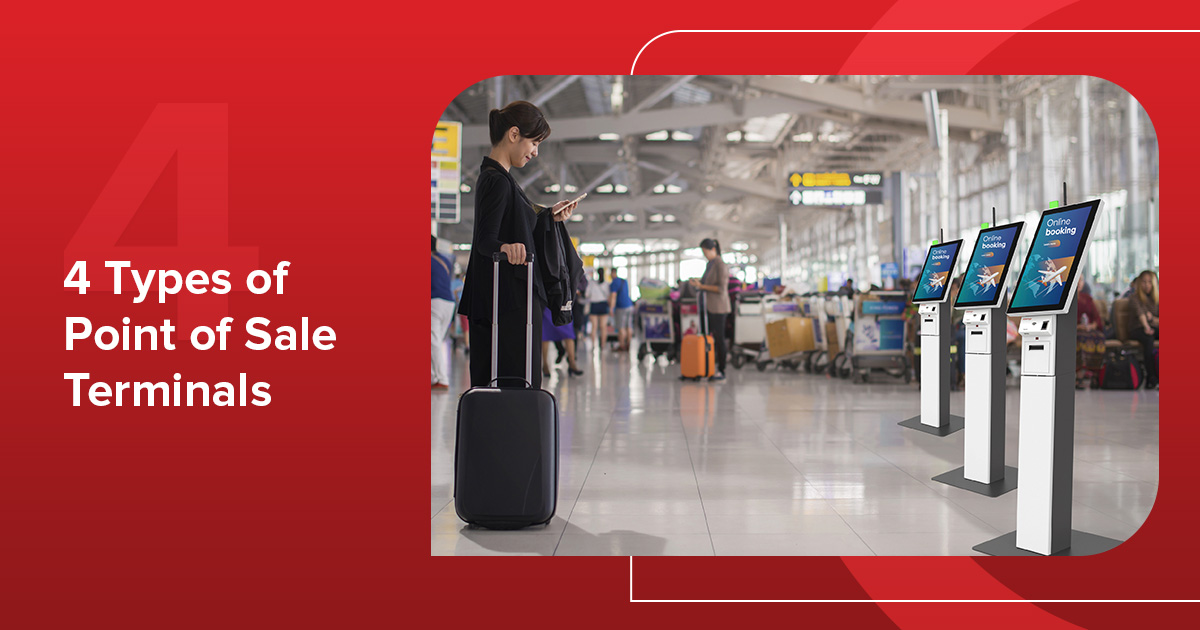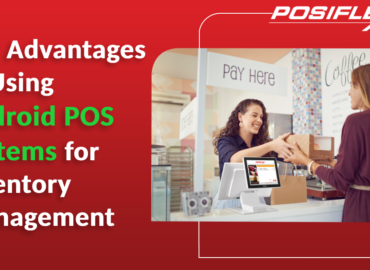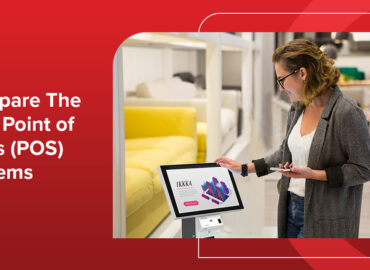Point of sale POS terminal
In the rapidly evolving world of retail and commerce, the Point of Sale POS terminal plays a crucial role in processing transactions, accepting payments, and facilitating customer interactions. With the continuous advancements in technology, businesses now have access to various POS terminals, each offering unique features and functionalities to meet specific operational requirements.
Businesses can optimize their transaction processes and enhance overall efficiency, contributing to their success in the modern marketplace by delving into the world of POS terminals. Please read this blog to explore the types of POS terminals and provide insights into their functionalities and benefits. Understanding these terminal options will empower business owners to make informed decisions regarding the most suitable POS system.
Types Of POS Terminals
The Point of Sale POS terminal has evolved significantly to accommodate businesses’ and customers’ changing needs and preferences. There are four primary types of POS terminals, traditional POS terminals, mobile Point of Sale (mPOS) terminals, tablet-based POS terminals, and cloud-based POS terminals. Let us explore these four POS terminals’ unique characteristics and functionalities.
Traditional POS Terminals
Traditional POS terminals provide a reliable and efficient way to process transactions and manage sales. These terminals typically consist of a fixed setup that resembles a cash drawer, with a display, keyboard or touchscreen interface, barcode scanners, and printers. For decades, they have been widely used in retail stores, supermarkets, restaurants, and other businesses.
One of the primary advantages of traditional POS terminals is their durability and reliability. They are designed to handle high transaction volumes, making them suitable for businesses with many daily sales. The robust hardware components of traditional POS terminals ensure they can withstand the rigors of a busy retail environment. Their keyboard or touchscreen interfaces make them easy to navigate and operate, requiring minimal staff training.
A traditional Point of Sale POS terminal offers stability and functionality but has some limitations. Their fixed nature restricts mobility, making them less suitable for businesses requiring flexibility and the ability to process transactions outside a fixed checkout counter. Despite these limitations, traditional POS terminals remain a popular choice for businesses seeking a reliable and proven solution for transaction processing.
Mobile Point of Sale (mPOS) Terminals
Mobile Point of Sale (mPOS) terminals have revolutionized how businesses handle transactions, offering flexibility, mobility, and enhanced customer experiences. One major advantage of mPOS terminals is their portability. They enable businesses to accept payments anywhere, whether on the sales floor, at outdoor events, or even at customers’ doorsteps. This mobility particularly benefits businesses like food trucks, pop-up shops, and service-based enterprises outside traditional brick-and-mortar locations.
A mobile Point of Sale POS terminal integrated with barcode scanners can help businesses effortlessly scan product codes and retrieve detailed information, such as pricing and inventory levels. Furthermore, mPOS terminals often come with advanced features and analytics capabilities. They can generate real-time sales reports, track inventory levels, and provide insights into customer behavior. These valuable data insights enable businesses to make data-driven decisions, optimize inventory management, and implement targeted marketing strategies.
Tablet-Based POS Terminals
Tablet-based Point of Sale POS terminal has emerged as a popular and versatile solution for businesses of all sizes. Tablets offer a compact and stylish alternative to traditional POS systems, taking up less counter space and providing a more aesthetically pleasing checkout experience. This can be particularly beneficial for businesses with limited space or those aiming for a more contemporary look and feel.
The touchscreen interface of tablet-based POS terminals offers an intuitive and user-friendly experience for staff and customers. The familiar gestures and user-friendly navigation make it easy to add items to the cart, apply for discounts, and process payments. With a wireless or Bluetooth connection to peripherals such as barcode scanners, and printers, staff can move freely around the store, taking orders and processing payments from anywhere. This mobility makes it the best POS system for restaurant, cafes, and other businesses offering tableside or curbside service.
Tablet-based POS terminals are cost-effective. Tablets are generally more affordable and readily available than traditional fixed POS systems. This makes them an attractive option for small businesses and startups with budget constraints.
Cloud-Based POS Terminal
A cloud-based Point of Sale POS terminal operates entirely on software and leverages cloud technology to store and process data. These terminals are highly flexible and scalable. Since they operate on software, businesses can access their POS system from any device with an internet connection, including computers, laptops, and tablets. This enables businesses to manage their operations remotely, access real-time sales data, and make data-driven decisions from anywhere. Cloud-based POS terminals are particularly advantageous for businesses with multiple locations, as they allow for centralized management and seamless integration across all branches.
Data security is another significant advantage of cloud-based POS terminals. Cloud providers invest heavily in robust security measures, including data encryption, firewalls, and regular backups. This ensures that sensitive customer and transaction data is protected and reduces the risk of data loss in the event of hardware failures or disasters. Cloud-based POS terminals offer a more affordable solution compared to traditional on-premises systems. They eliminate the need for expensive upfront hardware investments and ongoing maintenance costs. Instead, businesses typically pay a monthly subscription fee based on usage, allowing for more predictable budgeting and scalability.
Choose The POS Terminal Best-Suited For Your Business
Selecting the most suitable POS terminal for your business is an important decision impacting your operations and customer experience. Posiflex, a leading brand in the industry, offers a comprehensive range of over 20 POS systems and peripherals to meet diverse business requirements. This includes touch screen terminals, cash drawers, customer displays, barcode scanners, and printers. Their cash drawer prioritizes user convenience, ensuring hassle-free cash handling. A complete suite of peripherals from a single brand simplifies procurement and ensures compatibility.
With its durable, reliable, and robust POS systems with advanced features, Posiflex offers the best POS system for restaurant, retail, and hospitality businesses. Consider budget, integration capabilities, ease of use, and customer preferences, while choosing the right Posiflex POS system that matches your business needs.



